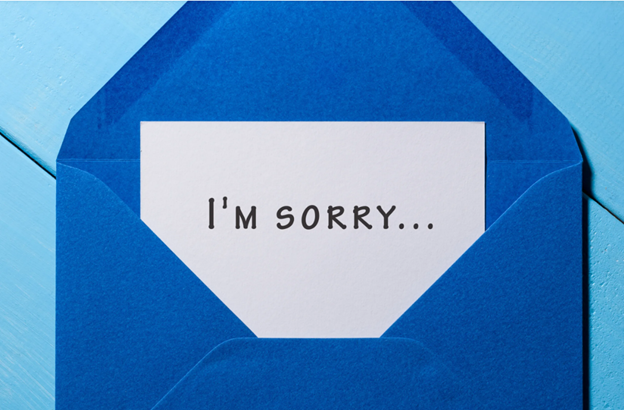Have you ever come across that non-apology apology? You know, the one that goes, “I’m sorry if you were offended,” or its close cousin, “I’m sorry that you…”These non-apologies aren’t just weak; they can actually inflict more harm and exacerbate hurt feelings. They shift blame onto the targeted person, make apologies conditional (“I’m sorry if…”) and introduce arguments (“I’m sorry, but…”). And, let’s not forget about gaslighting, whitewashing and all the other non-apology descriptors.
Dr. Derald Wing Sue, the noted microaggressions researcher, says, “When a person says something like, ‘I apologize if I offended you,’ they are not taking personal responsibility at all. They are saying, ‘I apologize for your reaction. It’s your fault!’”
So, what constitutes a good apology? An authentic apology begins with listening. Dr. Robin Denise Johnson teaches what she calls “transformational listening” in her 6 Soft S.K.I.L.L.S. course. Start by asking the other person what happened, then open your ears, close your mouth and listen to their account of the events and how it impacted them. Listen without formulating a response. Listen with an open heart and genuine curiosity.
After the person shares their feelings, which can be challenging, you should offer your apology. It should be unconditional, acknowledging what was done and expressing genuine remorse for the hurt caused. A genuine apology also involves a commitment to learn and strive to avoid repeating the same hurtful behavior in the future.
From Dr. Sue: “What you need to do is to be sincere and honest. [You can say:] ‘I apologize for hurting you. I apologize for being so insensitive.’ And once you say that, it has a really soothing effect on the person who felt that your insensitivity was directed towards them. You need to take responsibility for your words or actions. ‘I see what I’ve just said or done,’ and then you can say that you plan to do something about it. ‘I apologize for such and such, and I’ll try not to do it again.’”
In his eLearning course, Disarming Microaggressions, Dr. Sue emphasizes the importance of the final step: thanking the person for raising the issue. He notes that calling out someone, especially when there’s a power imbalance, requires courage. Expressing gratitude, such as saying, “Thank you for raising that,” is crucial. Dr. Sue underscores that apologies are straightforward—if you can avoid letting defensiveness distort your response.
Learn more in our upcoming course, Microaggressions with Dr. Sue: Listening and Apologizing, coming soon from SunShower Learning.


